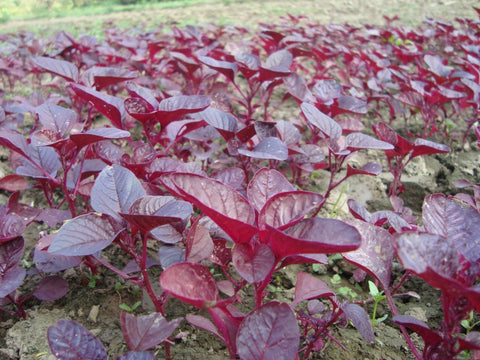7 High Blood Pressure Foods to Avoid
It is important to know which foods improve circulation and which high blood pressure foods to avoid. Eating a clean diet free from highly-processed foods is one of the best ways to stay healthy. High blood pressure is considered a major contributing factor to cardiac difficulties. But eating plant-based foods that support a healthy heart may help us live longer and more energetic lives.
According to the Centers for Disease Control and Prevention (CDC), heart disease is responsible for one in every four deaths in the United States each year. This means that there are about 659,000 deaths per year. In fact, heart disease is the leading cause of death for nearly every racial and ethnic group within the United States. Diet plays a vital role in managing blood pressure and these are the 7 high blood pressure foods to avoid.
Foods That Raise Blood Pressure Quickly and Should Be Avoided
Animal Meat
At the top of our high blood pressure foods to avoid list is animal meat. According to research from The National Institutes of Health, eating red meat triples a particular heart disease-related chemical in the body. Another study showed that red meat is connected to the development of hypertension, and is in the group of foods that raise blood pressure quickly.
That means omitting chicken, beef, veal, pork, venison, and lamb is necessary for a healthy diet. Animal meat contains saturated fats, a significant contributor to heart disease as the fat builds up inside blood vessels to create circulation hindering plaque. This results in high blood pressure, which may increase the possibility of a heart attack. It is no wonder that a plant-based diet has the power to support circulation and overall health.
Prepackaged Foods
Most prepackaged foods are designed for taste and satiety and not so much for health. Many prepackaged foods are packed with preservatives and sodium which can raise blood pressure very quickly. The saturated fat, preservatives, sugar, and unnatural flavor enhancers alone should be cause for alarm. These additives cause more harm than good - the convenience and satisfaction they provide do not outweigh the risks associated with increased blood pressure. Be sure to read labels, as it is very important to carefully examine the ingredients of prepackaged foods before purchasing anything that has excess sodium, caffeine, sugar, harmful additives, or animal byproducts.
Sodium

Sodium is a mineral comprising about 40% of salt. It is well documented to be a major one of the major foods that raise blood pressure quickly. Today there are many different names for this mineral. Whether it is called table salt, pink salt, fleur de sel, or Himalayan pink, all are sodium. Sodium is also heavily used in prepackaged food products, even those sold as vegan. Excess sodium consumption can lead to high blood pressure by causing the body to retain fluid. The US Food and Drug Administration (FDA) advises that adults consume less than 2,300 milligrams of salt per day (about one teaspoon). Children under 13 years of age should consume even less. Here are less obvious examples of foods commonly high in sodium:
Canned VegetablesCanned vegetables, especially tomatoes, seem like an innocent food product to use in everyday cooking. However, canned tomatoes and tomato sauce may contain 100 to 300 milligrams of sodium in just one serving. The high sodium levels in canned tomato products may also cause increased blood pressure. Other canned foods such as corn and string beans are in the same high sodium category and consideration should be given to limiting those in the diet.
Low sodium variations may seem like a better choice but they often have hidden sodium content making them less desirable when trying to control blood pressure. Instead, dietitians recommend eating frozen vegetables when looking for convenience and extended shelf life from our veggies. Freezing vegetables and fruits can help preserve healthy elements without the use of added sodium and sugar as many canned vegetables do.
Common condiments such as ketchup, teriyaki sauce, BBQ sauce, and some relishes may all contribute to raised blood pressure. This is because they contain high levels of salt and sugar. Sugar scavenges nitric oxide in the body, reducing vasodilation.
Caffeine
Caffeinated drinks can cause a short-term spike in blood pressure and contribute to the list of beverages and foods that raise blood pressure quickly. According to research done by the Mayo Clinic, caffeine may block a hormone that helps the body’s arteries widen. While the study shows that 2 cups of coffee will not have any significant effects (and can be benificial), 4 cups may start to cause blood pressure to increase. Other scientists believe that caffeine causes the adrenal glands to release more adrenaline, which causes blood pressure to increase. One of the best sources of natural energy-boosting can come from exercise, nitrate-rich foods, and teas that contain antioxidants like black tea and green tea.
Alcohol

Another primary high blood pressure food (beverage in this case) to avoid is alcohol. Too much alcohol can raise blood pressure levels and increase the risk of lifestyle-related disease. Alcohol increases the hormone renin, which causes the blood vessels to restrict blood flow. Renin also decreases the amount of fluid the body eliminates as urine. A study published in the American College of Cardiology showed that alcohol increases blood pressure even in moderate amounts (7-13 drinks/week).
In heavier amounts (14 or more drinks/week), the effects are much stronger, and the results of alcohol on high blood pressure can be serious. When alcohol is metabolized by the liver, it can also produce a toxic by-product called acetaldehyde, increasing blood pressure further and causing hangovers. This may explain why blood pressure is often higher the day after a night of drinking.
Dairy
Animal-based dairy products like milk, cheese, ice cream, and yogurt are unhealthy for the heart and may also contribute to high blood pressure. This is because they are high in saturated fats that can constrict blood flow through the vascular system. Dairy may also contain high levels of sodium as a result of processing. They may also cause inflammation in the body which may constrict blood flow and increase blood pressure. It is best to avoid all dairy products and use plant-based alternatives instead.
Sugary Beverages
Across six different studies, researchers found a 12% increase in risk for high blood pressure in individuals who drank sugary drinks daily compared to those who didn’t. Sugary beverages like sodas and many sweetened fruit juices have long been associated with a higher risk for developing hypertension and can potentially contribute to weight gain. It is important to watch for hidden sugars in prepared kombucha, teas, and lemonades. Instead, it is best if we prepare our own beverages that are water-based with natural sweeteners like adding berries or other fruits for flavor. Infusing water with fresh cucumber and lemon can enliven a cold glass of water and decrease the risk of developing harmful lifestyle-related diseases associated to sugary beverage consumption.
This rounds out the 7 high blood pressure foods to avoid but there are also things that can also improve circulation.
Better Foods That Improves Overall Health
One of the best ways to improve overall health is to source fresh fruits and vegetables and eat them raw or cook them from scratch, rather than eating highly processed foods like the items above. Eating a plant-based diet can help boost nitric oxide levels and some studies show can possibly prolong life versus eating a diet heavy in animal meat. Cooking our own food allows us to select healthier options and source key nitric oxide boosting ingredients. The top ingredients include red spinach, beets, arugula, and kale. Whatever path is chosen for our diet, making sure to add in these beet and leafy green vegetables is a great way to fire up our system and potentially increase our vitality for years to come.
Resources
“Cardiovascular Diseases (Cvds).” World Health Organization, World Health Organization, https://www.who.int/news-room/fact-sheets/detail/cardiovascular-diseases-(cvds).
Gonzales, Felisha. “Does Red Meat Metabolism Induce Hypertension.” Austinpublishinggroup.com, https://austinpublishinggroup.com/pulmonary-respiratory-medicine/fulltext/ajprm-v2-id1019.php.
“Heart Disease Facts.” Centers for Disease Control and Prevention, Centers for Disease Control and Prevention, 7 Feb. 2022, https://www.cdc.gov/heartdisease/facts.htm.
Lopez-Jimenez, Francisco. “What Caffeine Does to Blood Pressure.” Mayo Clinic, Mayo Foundation for Medical Education and Research, 8 June 2021, https://www.mayoclinic.org/diseases-conditions/high-blood-pressure/expert-answers/blood-pressure/faq-20058543.
“Sugary Drinks Seem to Raise Blood Pressure.” Harvard Health, 10 Dec. 2015, https://www.health.harvard.edu/heart-health/research-were-watching-sugary-drinks-seem-to-raise-blood-pressure.
https://www.health.harvard.edu/staying-healthy/eat-more-plant-based-proteins-to-boost-longevity
https://www.health.harvard.edu/heart-health/research-were-watching-sugary-drinks-seem-to-raise-blood-pressure
Alexander, S., Ostfeld, R. J., Allen, K., & Williams, K. A. (2017). A plant-based diet and hypertension. Journal of geriatric cardiology : JGC, 14(5), 327–330. https://doi.org/10.11909/j.issn.1671-5411.2017.05.014





Comments (0)
There are no comments for this article. Be the first one to leave a message!